RV Battery Charger
RV batteries are one of the lifeblood items of an RV! Without sufficient 12-volt battery power, neither the chassis battery system or the RV house battery system will function. RV systems require 12-volt power in order to run the control boards that allow appliances in the RV to work, even if the RV is plugged in.
Does your RV have an onboard RV battery charger?
Looking at the diagram above you can see that the 120-volt electrical system and the 12-volt house battery system are connected by a converter. This device is the RV battery charger for the house batteries. While the RV is in use and plugged into shore power, the converter comes on and off and keeps the house batteries charged depending on how much draw there is on the 12-volt system.
What things run on the house batteries? The more obvious systems like the lights inside and outside the RV, the vent fans that are mounted on the ceiling, possibly the slideouts depending on the type they are, maybe the TVs, the TV antenna booster, the water pump, and then the really important ones like the refrigerator control board for the RV absorption fridge, the AC control board, the water heater control board, and the RV propane furnace. These appliances will not function without 12-volt power.
Of course, there are other variations of this based on the RV and what the manufacturer installs in the individual models they produce. But the big takeaway that I want to get across here is that without enough 12-volt power, in excess of 11.5 volts, necessary systems will stop functioning.
So, the house battery system has an RV battery charger to keep the batteries fully charged. What about the chassis batteries of either the tow vehicle for a travel trailer or the class A, B, or C RV?
Tow vehicles will typically be used to get around when they are not pulling the RV trailer. But what about the motorized RV that may sit for weeks on end. Do those batteries need to be charged?
Howard and Pam’s Experience
From 2015 to 2018, we had a 2013 Winnebago Aspect. Here’s a story about our batteries.
Our Winnebago class C RV had two 12-volt house batteries and one chassis battery. The house batteries, as we have discussed already, are charged by the converter in our RV when plugged into shore power.
If the converter were to stop functioning, we would have to replace it quickly because our full time RV lifestyle does put a drain on our 12-volt house batteries. After 24 – 48 hours without a charge, they would need to be. If not charged, we would do permanent damage to them, and things would stop working due to low voltage.
Now the chassis batteries are another story. Most times we have been moving on a regular basis and the engine alternator charges our chassis battery while we are in driving mode from location to location.
In the past few months, we have been more static, and the RV has been sitting for a bit. The chassis voltage dropped down to 12.3 volts without any load. Now that’s not terrible, but concerning enough for me to consider buying an RV battery charger.
I have noticed lately that our chassis battery has been dropping off from 12.6 volts, after being charged by the engine alternator, down to 12.5, and then 12.4 volts. It is the original battery that the RV came with when it was manufactured in late 2012, and it is now over five years old. Now that does not mean that it is ready to be replaced yet but certainly worth watching.
Lately, I have come to believe that it is important to have an RV battery charger on hand that can charge both standard automotive batteries and deep cycle batteries. That way if the chassis batteries need charging, they can be topped off if the RV has sat for a while.
Also, if the converter does stop working, then the RV battery charger could keep the batteries charged while a new converter is installed. Keeping an RV battery charger on hand is definitely a good idea for the seasoned RVer!
The Solution
I did some research and found a few options that would work. Again, I was looking for something that would charge both standard and deep-cycle batteries. I also wanted to be sure it provided enough output amps to do a sufficient job of charging all my batteries. This is what I came up with:
- A charger that monitors the battery condition and adjusts the charge rate to prevent battery damage
- It is for cars, trucks, marine, RV’s, and for AGM, gel cell, and deep-cycle batteries
- It has a slow 2 amp charge and is great for charging small and maintaining large batteries
- The charger automatically determines whether it is connected to a 6-volt battery or a 12-volt battery
- It weighs only three pounds
- It measures 10″ x 10″ x 4″
This 15-amp fast charger monitors battery condition and adjusts the charge rate to prevent battery damage. The 10-amp charge has a self-adjusting charge rate for everyday charging needs that keeps your battery in peak condition.
The 2-amp slow charge is great for charging small batteries and maintaining large batteries; it also charges motorcycle, ATV, snowmobile, and lawn tractor batteries. The auto voltage detection means the charger automatically determines whether the connected battery is a 6-volt battery or a 12-volt battery.
We ordered the unit after doing a few days of research and decided on the unit pictured above. It arrived in a couple of days from the date of ordering. At that point, the chassis battery had dropped to 12.3 volts with no parasitic load on the batteries. When we are in the RV and plugged into shore power, there is nothing on the chassis batteries that draws a load.
So, I read the instructions, hooked up the unit to the chassis battery, and plugged it in. It immediately started charging the battery. Within an hour or two, the voltage that I read on the panel inside the RV was at 15.5 volts. It appeared the charger was going into hypercharge and desulfating the batteries. I left the charger on all night and by morning the battery reading was at 12.8 volts. Perfect!
Even after I unplugged the battery charger from the battery and disconnected the charging clamps, the next day the battery still showed 12.8 volts. It appears the battery needed some conditioning and the RV battery charger did the job! We are very pleased with it and we are definitely happy with the reasonable cost of the charger!
What do Others Say About this RV Battery Charger?
So, take it from Howard and Pam of yourfulltimervliving.com. If you are looking for an RV battery charger that will help you with your RV chassis and RV house batteries, give this charger a look!
========== > Click Here for More Information < ==========

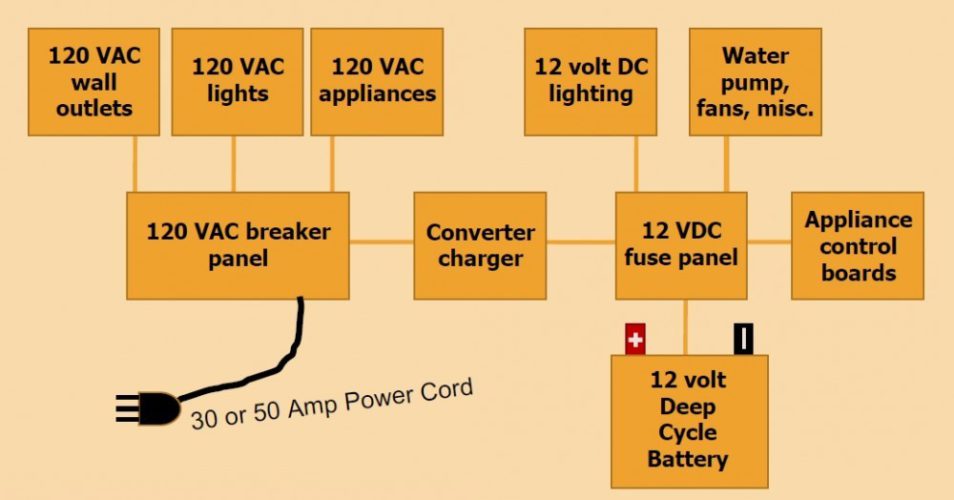
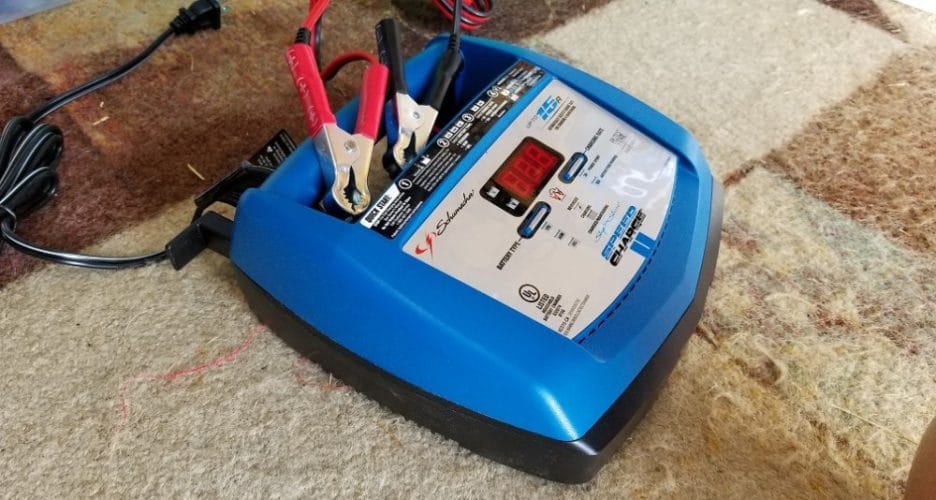
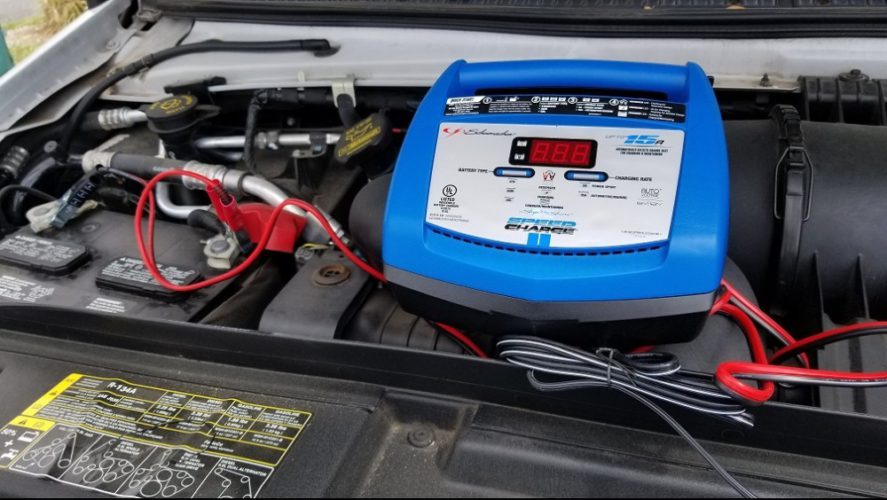
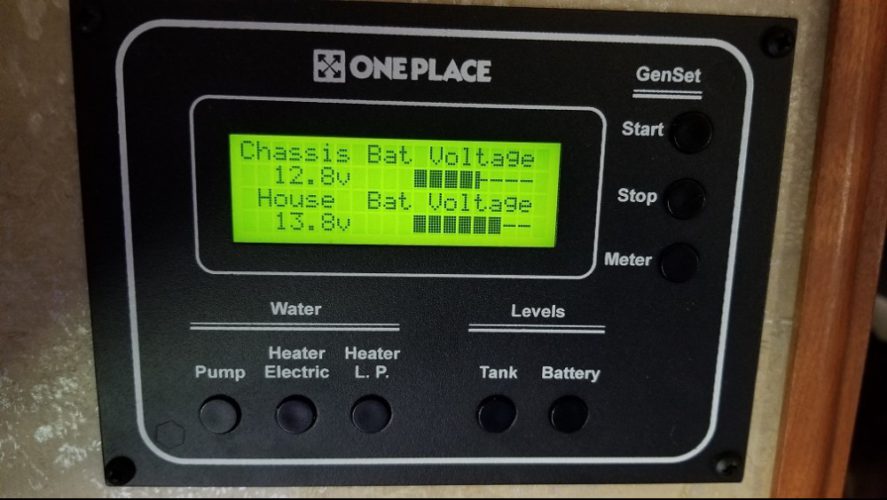
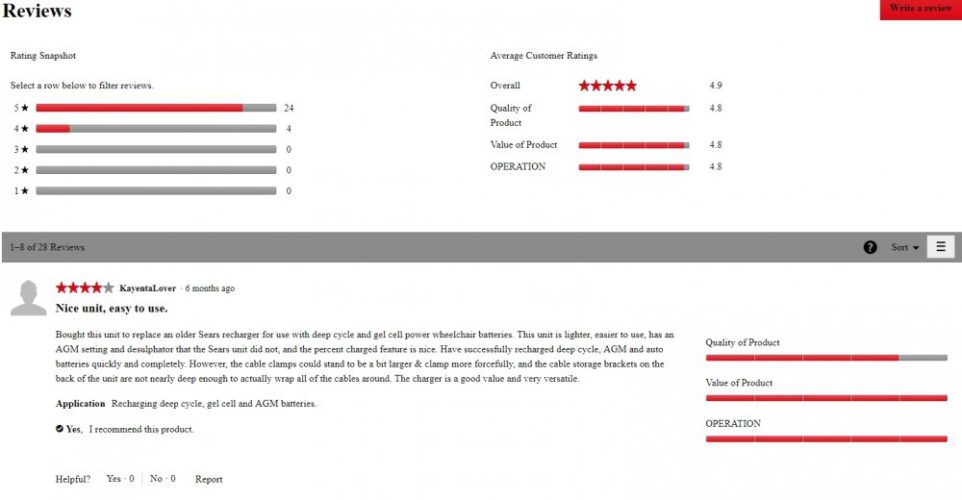
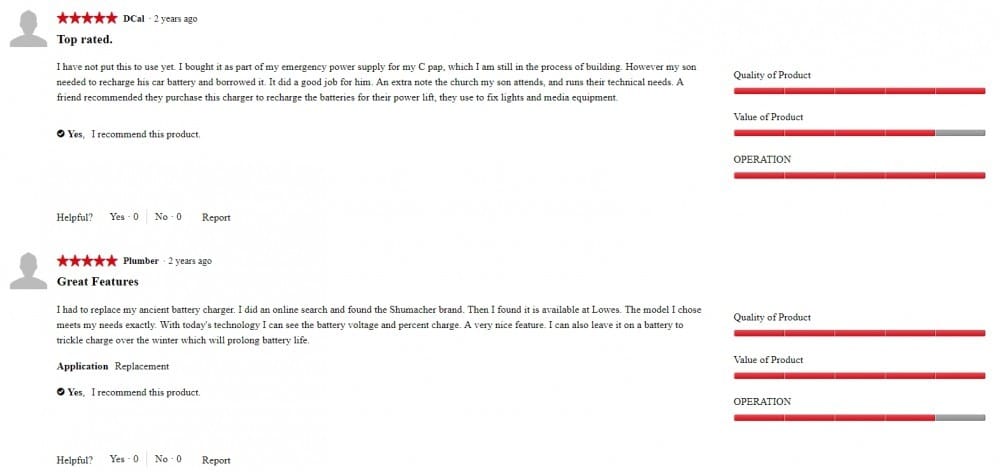
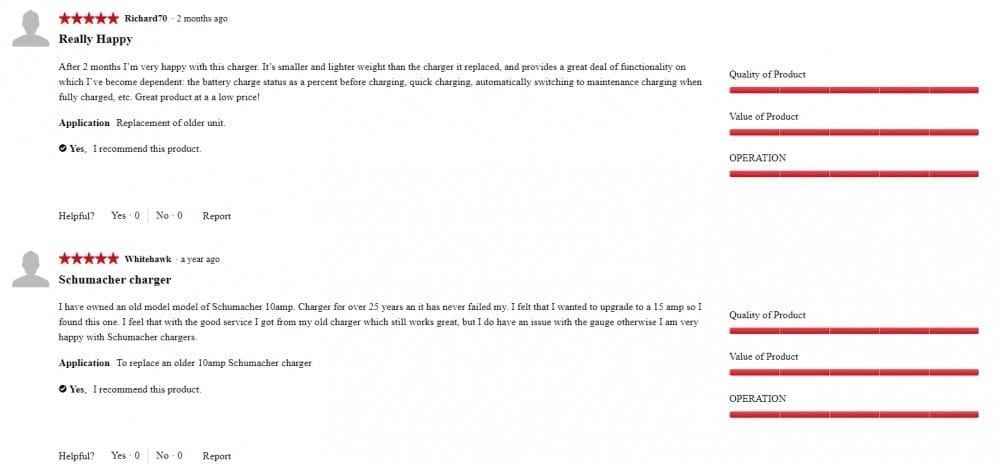
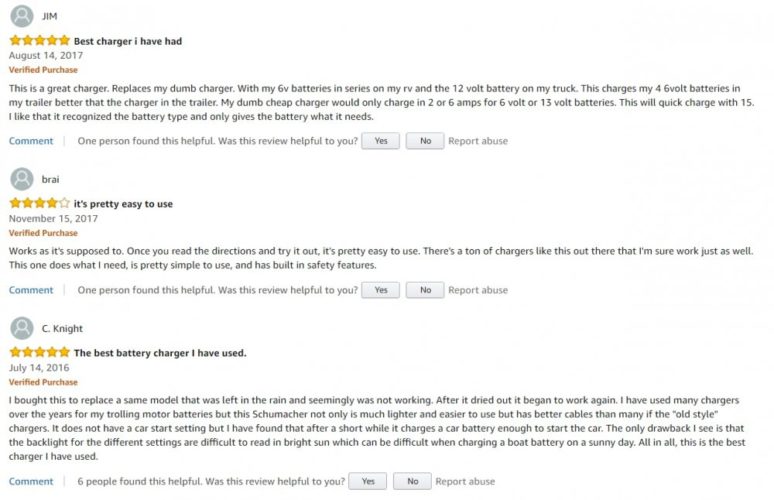







2 comments
I bought an RV trailer two months ago, and I think that its battery is the wrong type. That’s why I’m currently looking for a store that sells different variations of RV batteries. Thanks for this anyway; I’ll make sure to buy 12 bolt power batteries because as stated here, it’ll allow the appliances in the RV to work.
Loved it,
I’m a new RVer. Your aritlce was so helpful for me to get some extra knowledge about my deep cycle battery. Thank you for spending your valuable time for beginners like me.